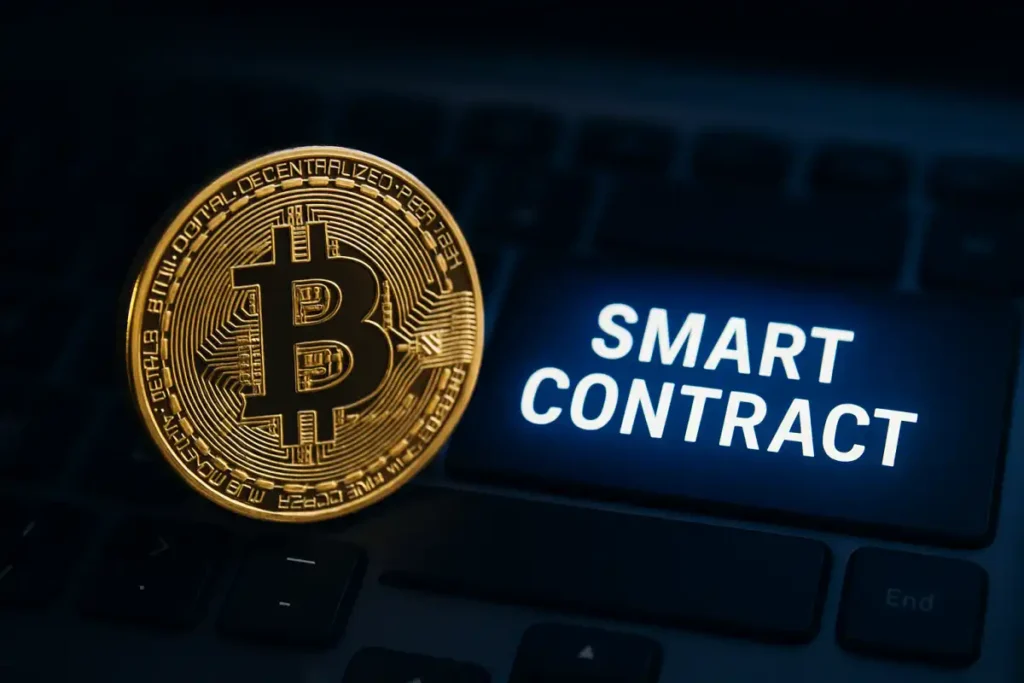In today’s digital world, especially with the rise of blockchain technology, one term we frequently encounter is “smart contract.” But what exactly is a smart contract? How does it work? Can such a system truly execute agreements automatically without human intervention? In this comprehensive guide, we’ll explore the fundamentals of smart contracts, their structure, advantages, and the transformative potential they hold for various industries.
Featured News Headlines
What Is a Smart Contract?
A smart contract is a self-executing digital agreement where the terms are directly written into code. These contracts operate on blockchain networks without the need for intermediaries, ensuring trust, transparency, and automation.
Originally conceptualized by cryptographer and legal scholar Nick Szabo in the 1990s, smart contracts became a functional reality with the introduction of platforms like Ethereum.
In essence, smart contracts operate on an “if this, then that” logic.
How Do Smart Contracts Work?
1. Operate on the Blockchain
Smart contracts run on decentralized blockchain networks. This provides security, immutability, and transparency, as every action is recorded permanently and publicly.
2. Conditions Are Defined in Code
The contract’s rules and logic are written using a programming language — most commonly Solidity for Ethereum. For example:
If the product is delivered, send 1 ETH to the seller.
3. Execute Automatically
Once conditions are met, the contract executes the defined actions automatically. No manual input or third-party involvement is required. This ensures fast, accurate, and trustless operations.
Key Use Cases for Smart Contracts
Smart contracts go far beyond simple cryptocurrency transfers. They hold revolutionary potential across multiple sectors:
Finance (DeFi)
Decentralized Finance (DeFi) platforms use smart contracts to offer services like lending, borrowing, and trading without banks or intermediaries.
Supply Chain Management
Track products from manufacturing to delivery using blockchain. Smart contracts automate and record every stage, ensuring transparency.
Real Estate
Automate property sales, deeds, and title transfers without notaries or legal offices. Transactions become faster and more secure.
Digital Identity & Voting
Enable secure, tamper-proof digital identity management and election systems that eliminate fraud.
NFTs and Intellectual Property
Artists and creators can use smart contracts to protect intellectual property and receive automatic royalty payments every time a work is resold.
Advantages of Smart Contracts
| Benefit | Description |
|---|---|
| Trustless | No need to trust the other party; the code enforces the terms automatically. |
| Transparent | Code is publicly visible and verifiable on the blockchain. |
| Low Cost | Cuts out intermediaries, reducing transaction fees. |
| Speed | Executes instantly once conditions are met. |
| Immutable | Once deployed, it cannot be changed, preventing tampering. |
Challenges and Limitations
Despite their benefits, smart contracts also face some challenges:
- Irreversibility: Coding errors can cause irreversible loss of funds or data.
- Legal Uncertainty: Legal frameworks for smart contracts are still evolving in many jurisdictions.
- Complexity: Writing secure and reliable smart contracts requires specialized knowledge.
- Scalability: As blockchain usage increases, network congestion can slow execution and raise fees.
Ethereum and Smart Contracts
Ethereum is the leading blockchain platform for smart contracts. Through the Ethereum Virtual Machine (EVM), developers around the world can create decentralized applications (DApps) that run exactly as programmed — without any chance of fraud or third-party interference.
The Future of Smart Contracts
Experts predict that smart contracts will revolutionize industries over the next decade. Integrated with technologies like Web3, metaverse, and DAOs (Decentralized Autonomous Organizations), they will shape how we transact, govern, and interact digitally.
How Smart Contracts Are Changing Our World
Smart contracts represent one of the most transformative innovations of the digital era. By enabling secure, autonomous, and transparent transactions, they are redefining trust and efficiency across sectors. From finance to logistics, real estate to intellectual property, their impact is profound and growing.
While legal and technical challenges remain, advancements in blockchain infrastructure and global regulatory support are helping overcome them. If you’re exploring the world of blockchain, understanding smart contracts is not just useful — it’s essential.
Frequently Asked Questions (FAQs)
How is a smart contract different from a traditional contract?
Are smart contracts legally binding?
What language is used to write smart contracts?


































Comments are closed.